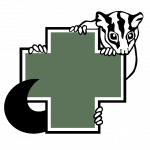JOIN US
Volunteers
Hunter Wildlife Rescue is run entirely by dedicated volunteers. We welcome volunteers over 18 years of age from all walks and stages of life to fill all kinds of roles within our organisation. Care is generally provisioned in our own homes. Whatever your living, working or family situation is – there is an opportunity for you to assist.
Register As A Member
To volunteer with Hunter Wildlife Rescue, you would need to register as a member and pay an initial registration and annual membership fee. This will cover costs for training and other resources.
Choose from the following membership options. Register and pay online now or complete a Membership Application form and pay via bank transfer. If you register online, an account will be created for you instantly and you will be able to view Member’s Resources.
Once you have registered and your application has been approved by the management committee, our membership officer will be in touch to inform you of when the next “New Member’s Course” will occur. These courses run regularly and serves as an induction covering volunteering roles, basic transport guidelines, safety and procedures within Hunter Wildlife Rescue.
Upon completion of your introductory course, you will be introduced to a coordinator in your area who will help you establish yourself in a role of your choosing. You will be connected with the relevant species coordinators based on your interests and a variety of other personal factors.
